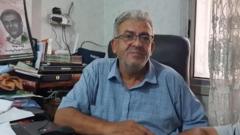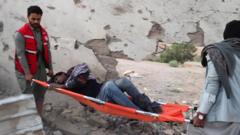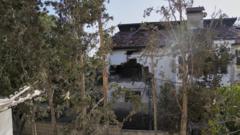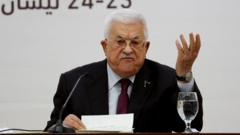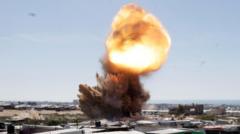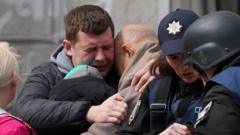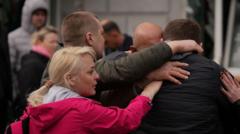The recent closure of UN-run schools in East Jerusalem has ignited sharp criticism from various stakeholders, with implications reaching far beyond local education.
Israeli Forces Shut Down UN Schools in East Jerusalem Amid Controversy

Israeli Forces Shut Down UN Schools in East Jerusalem Amid Controversy
Armed forces' actions prompt accusations from UN representatives and global entities over violation of educational rights.
Israeli security forces conducted an operation to close three schools managed by the United Nations Relief and Works Agency for Palestine Refugees (UNRWA) located in the Shuafat refugee camp in East Jerusalem. This action occurred shortly after school sessions commenced, leading to hundreds of students being sent home. UNRWA Commissioner-General Philippe Lazzarini condemned the Israeli authorities for infringing on children's right to education, labeling the closure as a "blatant disregard of international law."
The backdrop to this situation includes ongoing tensions surrounding UNRWA, which has faced a recent ban by the Israeli government that accuses the agency of being infiltrated by Hamas. UNRWA has steadfastly refuted these claims, asserting its commitment to impartiality. The closure orders, prominently displayed on school walls, described educational functions as prohibited, triggering distress among students, seen in videos where girls embraced outside affected schools.
Despite more than 550 students aged six to 15 being present at the time of the closures, observers noted the deployment of Israeli police at additional schools, further hampering educational access. Lazzarini emphasized that by enforcing these closure orders, Israeli authorities are undermining Palestinian children's educational rights. He argued for the necessity of keeping UNRWA schools operational to protect the future of an entire generation.
The Palestinian Authority responded by condemning the closures as violations of children's rights. Furthermore, international responses have emerged from nations including the UK, EU, and Japan, which collectively expressed strong opposition to the school closures, aligning with students, parents, and teachers in their advocacy for educational access.
UNRWA has functioned in East Jerusalem since 1950 as part of its UN General Assembly mandate. Nevertheless, the Israeli parliament has intensified restrictions against the agency, which may continue to create friction given the historical context of Israeli control and settlement in East Jerusalem since its capture in the 1967 war.
The situation reflects broader geopolitical themes, including the longstanding Israeli-Palestinian conflict and ongoing debates about the legality of Israeli settlements in the region—a point recently highlighted in an advisory opinion from the International Court of Justice (ICJ).
Overall, the school's closures underscore the persistent and complex dynamics of education, humanitarian rights, and political strife in this contested area.






